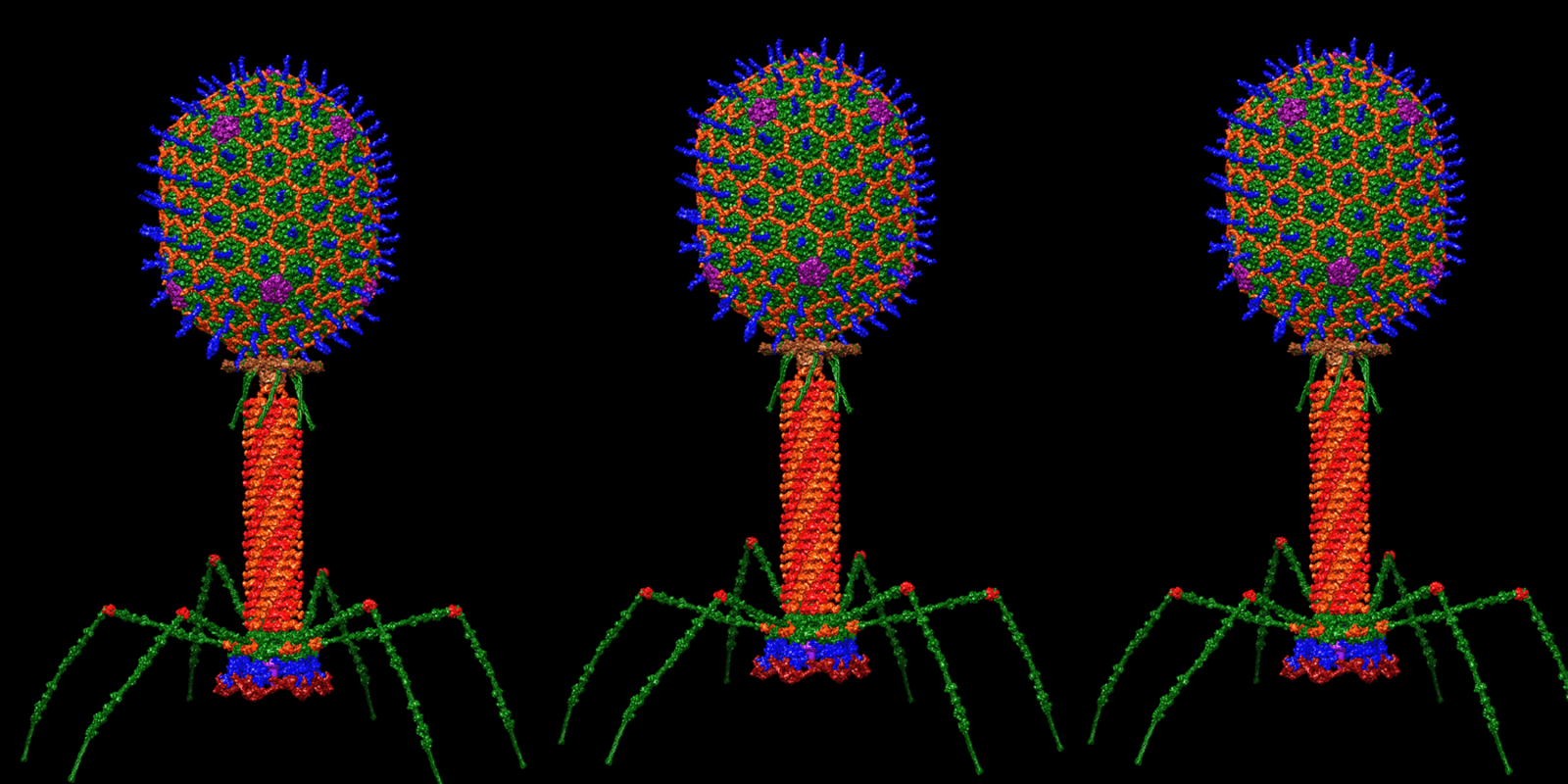


Physicist Brian Miller Answers the Big Bang Evaders
On this ID the Future, physicist Brian Miller looks at various attempts to evade the mounting evidence that the universe had a beginning, a Big Bang. Miller and host Casey Luskin first review the fascinating history of how the eternal universe model of the nineteenth century gave way to the Big Bang model. Then Miller walks through about a half a dozen attempts to evade a cosmic beginning after the Big Bang model had won the day. These evasions include the steady state model, the idea of an eternal cyclical universe, and the string landscape model. According to this model, our universe exists in a multi-dimensional brane (not “brain”) which exists in a higher dimensional space, and our multi-dimensional brane can collide with other branes, with each collision creating a Big Bang moment, a process said to have been going on for all eternity. Miller then explains why each of these attempts to evade a true cosmic beginning fail, and he says that if matter, energy, and space came into existence at the moment of the Big Bang, then it follows that the cause of this cosmic beginning is something immaterial. And since the cosmic beginning was finely tuned in many astonishing ways, Miller says, the cause of the Big Bang has left the signature of intelligent design. The cause, then, is an intelligent, immaterial being and one, obviously, of unimaginable power. Miller and Luskin then touch on a final attempt to evade these implications, the idea that the universe could have popped into existence from nothing—no God, no anything. But as Miller shows, the proposals along these lines, offered by such physicists as Lawrence Krauss and Stephen Hawking, do not actually start from nothing. There is always a something at the ground state, a something whose origin is left unexplained. The occasion for the conversation is Miller’s essay in the recent Harvest House anthology, The Comprehensive Guide to Science and Faith: Exploring the Ultimate Questions About Life and the Cosmos.

Behe: Bacteriophage—The New Poster Child for Darwin’s Doom
On today’s ID the Future, Lehigh University biologist Michael Behe argues that Darwinism was built on a foundation of ignorance. Through no fault of Darwin’s, neither he nor anyone else in his day had a clue about the nature of cellular life and biological information, says Behe. Even the biologists of the Neo-Darwinian synthesis in the first half of the twentieth century were fairly clueless about the foundation of life, Behe says. When researchers did finally begin to unravel the sophisticated foundations of life, earlier notions of how evolutionary processes might have invented the great diversity of life forms on earth were exposed as causally inadequate. Behe says that in fact all the attempts to rescue the idea of mindless macroevolution have been exposed as inadequate by our growing understanding of molecular biology, but evolutionary theory blithely sails along anyway, thanks to institutional inertia. A key defeater of the theory, Behe says, is captured by his concept of irreducible complexity. He explains the idea with a simple illustration, a mousetrap, and then applies it to a marvelous molecular machine that researchers have only recently come to appreciate, the Escherichia virus T4 bacteriophage. As he argues, this bacteriophage powerfully bespeaks the purposeful arrangement of parts, rather than mindless evolutionary processes. The occasion for his conversation with host Casey Luskin is his contribution to the recent Harvest House anthology, The Comprehensive Guide to Science and Faith. Image Credit: Dr. Victor Padilla-Sanchez: Atomic structural model of bacteriophage T4 in UCSF Chimera software using pdbs of the individual proteins.

Jay Richards on the Art of Answering Theistic Evolutionists
On today’s ID the Future, philosopher Jay Richards offers advices on engaging with evolutionists over the issues of origins, evolution, and intelligent design. In his conversation with host Casey Luskin, he says that if someone tells you he’s a theistic evolutionist, first find out what he means by theism and evolution. The latter term, in particular, can have widely varying meanings, and the average lay persons who see themselves as theistic evolutionists likely see God as actively and creatively working in the history of life to steer evolutionary outcomes, including the origin of humanity. What they may not realize is that such a view takes them well outside the bounds of what academic theistic evolutionists generally mean by the term evolution, particularly those theistic evolutionists who publicly defend evolutionary theory generally. Richards says that these academics hold to an internally incoherent view in many cases, and he encourages intelligent design proponents to surface that incoherence whenever the opportunity arises. For those who are willing to consider the evidence for intelligent design, Richards lists what he sees as the most rhetorically effective lines of evidence to present to people. The occasion for the conversation is Richards’ two chapters in the recently released Harvest House anthology, The Comprehensive Guide to Science and Faith.

How Universal Common Descent Survives Failed Predictions
On today’s ID the Future, philosopher of biology Paul Nelson discusses his chapter in a recent Harvest House anthology edited by host Casey Luskin, The Comprehensive Guide to Science and Faith. Nelson says the theory of universal common descent, a key component of modern evolutionary theory, has generated multiple predictions that have failed. The prediction he discusses here is that there would turn out to be a single universal genetic code, since that’s what we should expect if all life on earth is descended from the last universal common ancestor (LUCA). Findings over the past three decades have proven that prediction spectacularly wrong. How does the theory of universal common descent shrug off this contrary empirical finding? The trick for LUCA in this and similar cases is to shift blame for failure to an ancillary theory. It’s a clever move, says Nelson, but it comes at a cost.

Darwin’s Rhetorical Foundation of Sand: Theological Utilitarianism
On this ID the Future, biophysicist Cornelius Hunter explores Charles Darwin’s theological arguments for his theory of evolution. By theological, Hunter doesn’t mean that Darwin was arguing for theistic evolution. He means that Darwin received what is known as theological utilitarianism from the intellectual culture of his youth, which had strong deistic tendencies and expected everything in creation to be perfectly adapted, and he made a case against it, presenting mindless evolution as a better explanation for his observations of the biological world than theological utilitarianism. But one problem with this approach, according to Hunter, is that it assumed that theological utilitarianism is THE alternative to blind evolution. In fact, there are other alternatives, including an orthodox Judeo-Christian understanding of God’s relationship to his creation. In Hunter’s conversation with host Casey Luskin, he unpacks the differences in this other understanding of God and shows how Darwin’s tunnel-vision fixation on theological utilitarianism led him into multiple problems. Hunter further shows that this basic theological mistake of Darwin’s also crops up in later defenders of Darwinism. Hunter and Luskin end the discussion by making what may strike some as a surprising claim: Evolutionary theory, argued in the way that Darwin and many of his followers argue the case, is fundamentally theology-based, whereas the theory of intelligent design, which points to a design of life and the cosmos, is strictly science-based. The occasion for the interview is Hunter’s chapter on this subject in the recent anthology co-edited by Luskin, The Comprehensive Guide to Science and Faith: Exploring the Ultimate Questions About Life and the Cosmos. Check it out.

John Bloom on the Match that Lit the Scientific Revolution
On today’s ID the Future Biola University physicist John Bloom discusses his chapter in the recent anthology The Comprehensive Guide to Science and Faith, co-edited by host Casey Luskin. Bloom’s focus in his contributed chapter is the pivotal role of Christianity in the rise of science. Bloom, the academic director of Biola’s master’s program in science and religion, draws on his PhD training in physics but also on his PhD in ancient Near Eastern studies and his study of the history of science. Here he argues that while the Babylonians and Greeks contributed some discoveries and insights that would eventually play into the rise of science, science did not take off, was not born, until a cluster of crucial ideas drawn from the Judeo-Christian worldview infused Western thought. Only then did astrology become astronomy, alchemy chemistry, and the great adventure of scientific discovery begin in earnest. Tune in as Bloom and Luskin discuss the ancient predecessors of science and some of the key founders of science, including Copernicus, Galileo, Kepler, and Bacon, along with crucial ideas drawn from the Judeo-Christian worldview that lit the match. And find your copy of The Comprehensive Guide to Science and Faith here.

Casey Luskin: Biogeography Is No Friend of Common Descent
On this ID the Future, geologist Casey Luskin discusses biogeography and the problems it poses for the idea of universal common descent. To make it work, evolutionists have to propose, for instance, that old world monkeys rafted across the Atlantic from Africa to South America on a natural raft. Really? That’s some raft. And how did the monkeys not starve to death? Or die of thirst? They couldn’t drink salty ocean water, after all. And talk about a genetic bottleneck! That’s just one of several problems Luskin raises with the idea that all species gradually evolved from a universal common ancestor. In his conversation with host Emily Reeves, he also touches on the problem of convergence, as when two creatures that are, at best, only very distantly related, nevertheless share a major common feature, such as humans and octopuses both having camera eyes. But evolutionists acknowledge that the putative common ancestor of humans and octopuses didn’t even have eyes, meaning the evolutionists must hold to the view that this very specific marvel of optical engineering just happened to evolve twice. Luskin notes that this example of convergence is just one of countless such instances. In each case, evolutionists find ways to explain the problem away, but Luskin compares these ad hoc patches to the epicycles that Renaissance-era proponents of an Earth-centered model of the solar system kept introducing to explain away the growing body of astronomical evidence that ran contrary to their geocentric theory. When your theory gets messier and messier to account for new data, Luskin argues, maybe it’s time to step back from the theory and consider other possibilities. The alternative he favors: common design. The occasion for this conversation is Luskin’s chapter on biogeography and evolution in the recent anthology from Harvest House Publishers, The Comprehensive Guide to Science and Faith: Exploring the Ultimate Questions about Life and the Cosmos.

Wesley J. Smith Sounds the Alarm on Germline Genetic Editing
On today’s ID the Future, bioethicist Wesley J. Smith makes the case for passionate opposition to, and stricter bioethical regulations against germline genetic engineering that changes not only the genetics of the subject but also of all that subject’s descendants. He and episode host Casey Luskin discuss germline genetic editing in China, the brouhaha that ensued when the experimental work by He Jiankui came to light, and why Smith is convinced that China’s disapproving response is less than it appears on the surface. He’s convinced, he explains, that the Chinese government wasn’t upset that the Chinese scientist conducted the experiment. They surely knew about his work and allowed it, Smith says. Rather, they and the scientific establishment internationally were upset that Jiankui went public before the public had been softened up to embrace germline genetic editing with lots of talk about how it will save lives. Smith argues the health benefits being pursued can be achieved without permanently altering the germlines, and he warns of a brave new world of eugenics pursued using CRISPR technology and germline editing. As he explains, it’s not just that germline editing could lead to unintended health consequences, or that such changes could work their way into the human population long term. It’s also that the eugenics mindset driving much of this experimental work threatens to undermine the foundational belief that all humans possess inherent dignity and worth, not just those humans who are genetically edited and enhanced. The occasion for the conversation is Smith’s bioethics chapter in the recently released anthology from Harvest House Publishers, The Comprehensive Guide to Science and Faith.

Casey Luskin on the Nature and Fruits of Intelligent Design
On today’s ID the Future, guest Casey Luskin and host Eric Anderson untangle the differences between creationism, intelligent design, and theistic evolution. There are important distinctions as well as areas of overlap, Luskin explains, but the theory of intelligent design focuses on the book of nature, rather than on the Bible or some other sacred book, and offers evidence that certain features of the natural world are best explained by reference to an intelligent cause. The case for intelligent design includes negative arguments against competitor explanations, such as neo-Darwinism, as well as positive evidence for design. And Luskin notes that increasingly this paradigm is fueling fruitful scientific research in everything from protein science to pharmacology and cosmology. To support this important work and Discovery Institute’s Center for Science and Culture, click here for options.